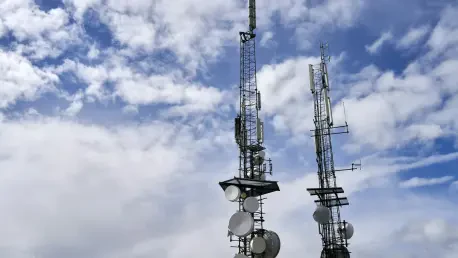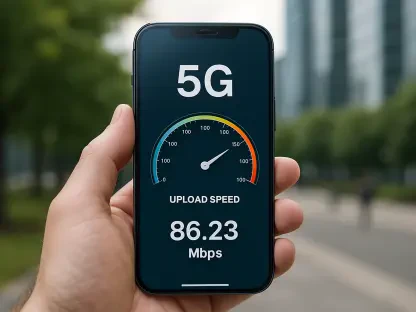The Federal Communications Commission’s (FCC) exploration into EchoStar’s spectrum licenses has stirred considerable debate across the telecommunications landscape. As the regulatory body led by Chairman Brendan Carr assesses EchoStar’s obligations to build a nationwide 5G network, particularly in rural areas, the outcomes could pivot the wireless industry. This scrutiny is not just a routine check; it holds potential for altering market dynamics and shaping the future of wireless competition in the United States. If the FCC concludes that EchoStar failed to meet its commitments, the company faces a possible license revocation, which would have significant ramifications on its strategy to establish a fourth major wireless carrier alongside industry giants Verizon, AT&T, and T-Mobile.
EchoStar’s Commitment to Rural Network Expansion
Regulatory Background and Industry Expectations
At the core of the FCC’s investigation is whether EchoStar has adequately progressed toward fulfilling its 2 GHz spectrum build-out mandates, including crucial rural deployment. The regulatory framework requires EchoStar to deliver a broader wireless network as a step to breathe life into competition and enhance connectivity in underserved regions. Failing to do so not only challenges the company’s future role but also its ability to serve as a disruptive force within the market. Critics, including former Republican FCC commissioners, argue that EchoStar’s struggle to deliver on these commitments underscores broader sector vulnerabilities.
Potential Impact on Market Structure
EchoStar’s inability to meet these regulatory benchmarks could reverberate through the telecom sector, potentially eroding investor confidence and chilling future spectrum auctions. This potential fallout is significant, as it could impact spectrum undervaluation and deter critical infrastructure investments essential for widespread 5G rollout. Investment apprehensions could stunt the growth necessary for the anticipated technology leap, particularly in bridging the urban-rural digital divide. Furthermore, policy experts highlight that ejecting EchoStar from its spectrum rights could inadvertently cement the dominance of existing stalwarts like Verizon and AT&T by eliminating a prospective formidable competitor.
Financial and Political Complexities of EchoStar’s Situation
Financial Strain and Possible Bankruptcy
EchoStar’s current financial instability compounds the challenges faced by the company. The suspension of debt coupon payments has not only invoked bankruptcy speculation but has also complicated the FCC’s investigation. Critics suggest that wresting the licenses from EchoStar amid financial distress might cripple ongoing network projects and limit options for consumers in rural areas. The financial turmoil thus presents a significant paradox for policymakers aiming to balance enforcement of regulatory compliance with the ambition to cultivate a competitive marketplace.
Political Undertones and Regulatory Influence
The investigation into EchoStar is further charged with political dynamics due to the involvement of Chairman Charlie Ergen, a notable Democratic donor. Allegations of biased treatment under Brendan Carr’s FCC leadership introduce layers of political intricacy that could shape the regulation’s trajectory. Observers contend that any perceived politicization of regulatory enforcement could cast long-term shadows over the FCC’s perceived impartiality. The political nuances, therefore, add complexity to an already challenging regulatory environment, suggesting that the FCC’s handling of this investigation could become a precedent for future telecom oversight.
Shaping the Future of Wireless Competition
Balancing Innovation and Market Regulation
The ongoing debate surrounding EchoStar serves as a significant instance of the broader conversation about fostering innovation while ensuring compliance with regulation. Industry stakeholders call for a balanced regulatory approach that simultaneously encourages new entrants and holds them accountable. A strategy focusing on punitive actions could inadvertently stifle market dynamism and innovation. Ensuring competitive safeguards while promoting connectivity advancements remains central to enhancing American telecommunications.
Implications for Consumers and Policy Development
The Federal Communications Commission (FCC) is currently investigating EchoStar’s spectrum licenses, a move sparking significant debate in the telecommunications sector. Under the guidance of Chairman Brendan Carr, the FCC is scrutinizing EchoStar’s commitment to establishing a nationwide 5G network, especially in less densely populated rural regions. This investigation carries substantial weight, as its findings could transform market dynamics and influence the future landscape of wireless competition in the U.S. This isn’t just a standard procedural check; it’s a pivotal assessment with the potential to reshape the wireless industry. If the FCC determines EchoStar hasn’t fulfilled its obligations, the company risks having its licenses revoked. Such a decision would dramatically impact EchoStar’s strategic efforts to emerge as a fourth major wireless provider alongside current leaders Verizon, AT&T, and T-Mobile. The implications of this decision could lead to significant shifts in the competitive balance of the American wireless market.









